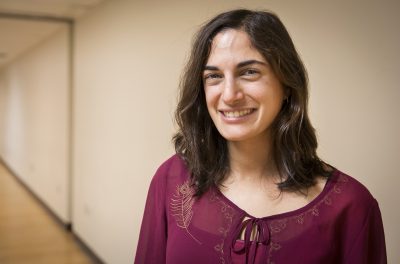
In a recent effort to improve working conditions and benefits, Boston University graduate students began to push toward unionization in cooperation with the Service Employees International Union Local 509.
The students’ effort towards unionization was made possible in August, when the National Labor Relations Board ruled that graduate students who work as teaching and research assistants at private universities are considered employees of the university.
BU graduate students, who are now deemed university employees, are seeking to solidify their rights as workers. Christopher Holden, one of the students behind the effort, said their first few informational meetings were successful.
“Our meetings have been a great opportunity to discuss things that are going well at BU that we want to preserve, problems we want to see addressed and how we can strengthen our voice on the issues that affect us,” said the fourth-year Ph.D. candidate.
Sarabeth Buckley, a third-year Ph.D. candidate, said students in each department have different reasons behind their support for unionization. The energy behind the movement was overwhelming, Buckley said, with students with different concerns working toward a mutual goal — to improve working conditions and employees’ benefits.
“From the humanities side, there are a lot of financial issues,” Buckley said. “For example, there is a lack of summer funding, but people aren’t allowed to work elsewhere, so some have actually had to drop out of the program. Also, the funding has been less and less reliable.”
Buckley said graduate students in science, technology, engineering and mathematics departments are concerned with the lack of benefits, including vision and dental care, the latter of which was recently withdrawn, prompting the students to work toward regaining the benefits they once had.
Students have also brought up the concern regarding loopholes in parental leave, Buckley said.
“If you’re on an external fellowship, you can take the leave, but you end up not being paid during that time,” Buckley said.
The minimum vacation days for graduate students who work as teaching or research assistants remain ambiguous. Consequently, graduate students are uncertain about what they are allowed to do and what their expectations are, Buckley said.
Graduate students are also promoting better day care options. Without good day care options, it is almost impossible for students to work and study while supporting a family, she added.
“Right now, the university can decide what they want to do, and we just have to agree and go along with it,” Buckley said. “We want to have more of a say in how our employment functions and be a part of that process.”
There is a long process for the proposed unionization to reach ratification, and the timeline remains unclear, said Buckley.
“This is a democratic process, so it will be up to all of us as union members to decide what issues we want to push in our first contract,” Holden said. “What we do know is having a formal contract will establish clear expectations both for graduate assistants and the university.”
School of Education Dean Hardin Coleman said graduate students who are pushing for unionization must critically analyze the effects that unionization may have on the university and their academic experience.
“With what might be an increase in benefits comes a loss of autonomy,” Coleman said. “The job will have a more rigid schedule and there are no funds for overtime. Everyone will have to work to the rule. Graduate students are preparing for a professional role, and it is hard to see how a union contract will facilitate that.”
Coleman said another consequence of unionization is the risk of job loss, because some work for graduate student can be done by work-study students or other undergraduates who are willing to work for academic credit.
“I am very pro-union when one does not have control over one’s working condition,” Coleman said. “I do not think that is an accurate portrayal of a graduate student’s life.”
Aviva Cormier, an eighth-year Ph.D. candidate, said graduate students should receive better treatment from the university.
“We are the face of the university in classrooms, at conferences and in other academic settings around the world,” Cormier said. “That fact needs to be reflected in the way the university treats its graduate workforce.



















































































































Dev Luthra • Dec 3, 2016 at 10:50 am
I am an adjunct at BU/Met College/Prison Education Program. I hope all unionized workers at BU can gather and support this effort. Let’s allow ourselves to be inspired. WE are all stronger together.